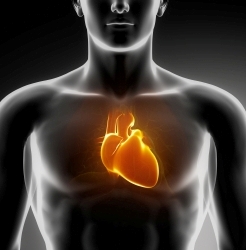
 Today is World Heart Day, and having recently got back from attending the European Congress of Cardiology as part of my role at BMC Medicine, it seemed an opportune moment to take you through some of the important findings discussed there.
Today is World Heart Day, and having recently got back from attending the European Congress of Cardiology as part of my role at BMC Medicine, it seemed an opportune moment to take you through some of the important findings discussed there.
The World Health Organisation (WHO) has estimated that 17 million people die every year from cardiovascular diseases. However, the majority of these deaths could be avoided by managing risk factors such as tobacco smoking, unhealthy diet, physical inactivity and harmful alcohol use.
To achieve control of these risk factors the WHO and the US Centers for Disease Control and Prevention (CDC) are developing and implementing appropriate policies to tackle the challenges.
The issue of research in cardiovascular diseases in Europe has also recently been addressed in the news showing that the CardioScape EU funded project will help guide priority research, identify duplication and encourage collaboration. This has resulted in the generation of key research projects on treatment, prevention, lifestyle factors, diagnosis and management of cardiovascular diseases.
Some of the ground breaking results generated from these and other large collaborations were discussed at the European Congress of Cardiology. Below I’ve summarized some of the fascinating findings emphasized there that tie in with World Heart Day’s focus on heart-healthy environments.
Novel treatments
 Lipid lowering medicines including the hot topic of statins were discussed at the meeting, with a systematic review on statin pharmacogenetics highlighting the need for stronger research before there can be any clinical applications.
Lipid lowering medicines including the hot topic of statins were discussed at the meeting, with a systematic review on statin pharmacogenetics highlighting the need for stronger research before there can be any clinical applications.
This links in with a systematic review and meta-analysis published in BMC Medicine that showed that the observed harmful unintended effects of statins are very small compared to their beneficial effects on major cardiovascular events.
Other lipid lowering therapies were described in a hot line session and included the proprotein convertase subtilisin/kexin type 9 (PCSK9) inhibitor, alirocumab, a human monoclonal antibody that regulates blood cholesterol. The ODYSSEY Phase III programme was highlighted showing alirocumab resulted in a significant and continuous LDL-C lowering in high risk cardiovascular disease (CVD) patients.
Continuing on the theme of therapy, Milton Packer from the Department of Clinical Sciences at University of Texas Southwestern Medical Center presented groundbreaking clinical trial results at another hot line session and at a very engaging ‘Meet the Trialist’ session.
The results from this landmark trial PARADIGM-HF in over 8,400 patients showed that the LCZ696 (angiotensin receptor neprilysin inhibitor) was superior to standard enalapril (angiotensin-converting enzyme inhibitor) therapy in reducing the risks of death and of hospitalization for heart failure. The findings from PARADIGM-HF will have a profound impact on international guidelines on the management of chronic heart failure.
Prevention strategies through modifying risk factors
 Prevention of cardiovascular disease was emphasized at several key sessions at the congress and discussions included the role of diet, weight loss, interventions, outcomes, public health and policies.
Prevention of cardiovascular disease was emphasized at several key sessions at the congress and discussions included the role of diet, weight loss, interventions, outcomes, public health and policies.
In the session on interventions and outcomes Margaret Cupples from the University of Belfast generally described the multiple risk behaviors for cardiovascular disease including eating an unhealthy diet, smoking, excessive alcohol drinking and physical inactivity.
She particularly emphasized the requirement to increase levels of physical activity in the socioeconomically deprived, with a need for more initiatives, reduction of barriers to physical activity, and implementation of community-wide programs like the ‘Healthy Hearts in the West’. This strategy aims to raise awareness of cardiovascular disease and involve people in a range of healthy activities.
Interestingly a prospective cohort study published in BMC Medicine also highlights the importance of physical fitness in CVD prevention and shows that muscle strength in adolescent men is associated with decreased risk of CVD events in later life.
Furthermore, reduced incidence of cardiovascular disease and mortality in those at high risk of heart disease is associated with olive oil intake from an analysis in the PREDIMED trial, showing the important role of a healthy diet.
Regional and global initiatives to prevent risk of CVD
 The critical strategies to reduce global and regional CVD risk were addressed in an excellent presentation from David Wood of Imperial College London, who discussed the WHO global monitoring framework to reduce premature death from non-communicable diseases (NCD’s) by 25% by 2025.
The critical strategies to reduce global and regional CVD risk were addressed in an excellent presentation from David Wood of Imperial College London, who discussed the WHO global monitoring framework to reduce premature death from non-communicable diseases (NCD’s) by 25% by 2025.
The WHO Global Action plan for the prevention and control of NCDs from 2013-2020 and the World Heart Federation strategic goals to reduce the burden of heart disease were also highlighted in this talk.
At a national level, the Joint British Societies have recently published consensus recommendations on the prevention of cardiovascular disease and developed a tool to help determine CVD risk and the benefits of lifestyle and pharmacological interventions.
Prevention strategies implemented at Imperial College London additionally focus on education, training and reorientation of healthcare systems like MyAction to help reduce cardiovascular risk. Other tools involving mobile technology and smartphone apps have lately been discussed by Hans-Christoph Diener and colleagues to help monitor atrial fibrillation and thus inform patients of their risk.
In summary, new therapies for cardiovascular diseases and implementation of strategic plans at local, national and global levels will enable prevention and management of the disease, in addition to reducing risk.
Some of the ground breaking results discussed at the recent congress have been achieved through exciting partnerships and large collaborations. These novel findings will promote further research in cardiovascular medicine and help reduce the growing burden of the disease within the next decades.
You can find more articles on risk factors and treatment of cardiovascular disorders at the following link: https://www.biomedcentral.com/bmcmed/tags/cardiovascular
 BMC Medicine: passionate about quality, transparency and clinical impact
BMC Medicine: passionate about quality, transparency and clinical impact
2013 median turnover times: initial decision three days; decision after peer review 51 days
Comments